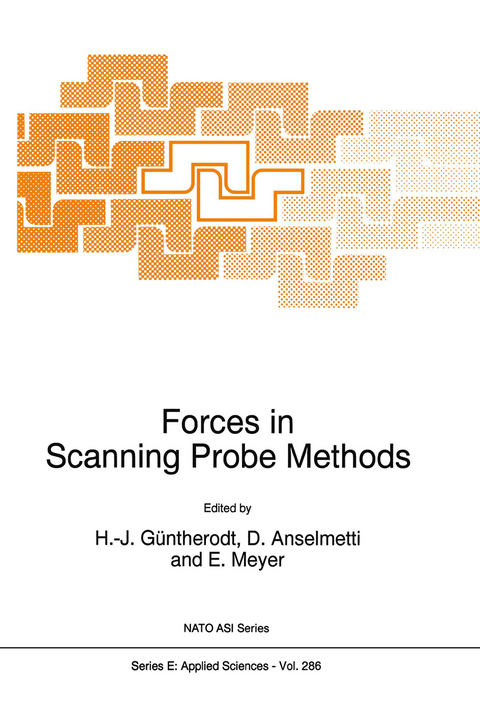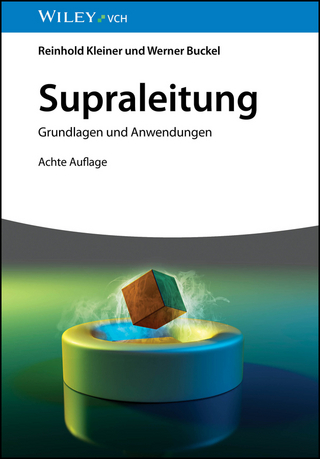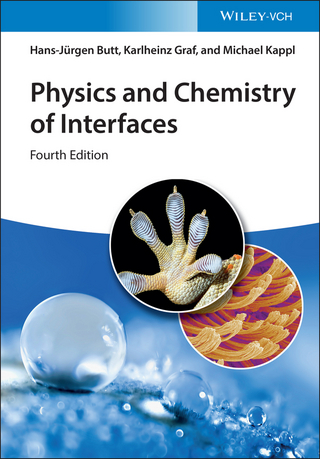
Forces in Scanning Probe Methods
Springer (Verlag)
978-0-7923-3406-4 (ISBN)
This volume contains the proceedin,r. of the NATO Advanced Study Institute on "Forces in Scanning Probe Methods which was CG-sponsered and organized by the "Forum fUr N anowissenschaften". The conference was held in Schluchsee in the south- em Black Forest (Germany) from March 7-18, 1994. 30 invited lecturers giving tuto- rial talks of historical and recent research activities and about 100 contributed, oral and poster presentations from 130 people participating, created a very active and lestimulating, lively atmosphere. The inventions of scanning tunneling microscopy, atomic force microscopy and near field optical microsocopy opened a new field of research, called scanning probe meth- ods (SPM). During the last decade, the quality of image acquisition made tremendous progress due to advanced data acquisition systems, low noise electronics and suitable mechan- ical and micromechanical constructions. However, a lot of fundamental, unsolved questions about the interaction between probing tip and sample remain. This vol- ume contains 60 contributions dedicated to these problems. Most of the articles are review articles presenting. condensed and relevant information in a way suitable for both students and specialists.
Topics that are covered are instrumental aspects, de- signs of force microscopes in various environments, such as ambient pressure, low temperature, ultrahip vacuum and liquids. An important part of the workshop was dedicated to theory, Including all initio calculations and molecular dynamics simula- tions. Mechanical properties, such as adhesion, friction and wear, on the micrometer and nanometer scale were also treated intensively.
to Scanning Probe Methods.- The Nanometer Age: Challenge and Chance.- Instrumentation.- Scanning Probe Microscopy Instrumentation.- Low Temperature Scanning Force Microscopy.- Measuring Ultrafast Voltage Signals Using a Scanning Force Microscope.- Oscillating String as a Force Sensor in Scanning Force Microscopy.- Electrostatically Actuated Silicon Micromachined Sensors for Scanning Force Microscopy.- Effect of Overlayer Thickness on the Nanoindentation of SiO2 /Si.- Nanostethoscopy: a New Mode of Operation of the Atomic Force Microscope.- A Multi-Test Instrument Based on Scanning Probe Technologies.- Hydrophobic Surface Interactions Studied Using a Novel Force Microscope.- Imaging Loal Electric Forces in Organic Thin Films by Scanning Maxwell Stress Microscopy.- Simultaneous AFM and Local Conductivity Imaging.- Micromechanical Heat Sensor: Observation of a Chemical Reaction, Photon and Electrical Heat Pulses.- Theory.- Forces in Scanning Probe Microscopy.- Controlled Motion of Xe Atom on Metal Surfaces.- Van der Waals Forces and Probe Geometeries for Some Specific Scanning Force Microscopy Studies.- Atomistic Theory of the Interaction between AFM Tips and Ionic Surfaces.- Molecular Dynamics Simulation of Atomic-Scale Adhesion, Deformation, Friction, and Modification of Diamond Surfaces.- Simulation of SFM Images of Adsorbed C60 and C70 Molecule.- Metallic Adhesion.- Atomic-Scale Metal Adhesion.- Photons.- Photons and Forces I: Light Generates Force.- Photons and Forces II: Forces Influence Light.- Friction.- Interfacial Friction and Adhesion of Wetted Monolayers.- Coherent Phonon Generation in the Process of Friction.- Friction Force Microscopy.- Molecular Scale Study of Domain Boundaries and Frictional Stick-Slip Motion on Lipid Bilayers.- Two-Dimensional Atomic-ScaleFriction Observed with an AFM.- Normal and Lateral Forces in Friction Force Microscopy.- Nanotribology and Chemical Sensitivity on a Nanometer Scale.- Lateral Force Measurements on Phase Separated Polymer Surfaces.- Friction and Load on Well Defined Surfaces Studied by Atomic Force Microscopy.- Friction on an Atomic Scale.- Nano and Micromechanics.- Nanomechanics: Atomic Resolution and Frictional Energy Dissipation in Atomic Force Microscopy.- Nanotribology and its Applications to Magnetic Storage Devices and MEMS.- Lifetime Criteria of Macro- and Microtribological Systems.- Mechanical Property Evaluations of Solid Surfaces as a Technological Application of SPM.- Effects of Boundary Lubricants and Metallic Oxides in Steel-Steel Tribological Junctions Studied with the Atomic Force Microscope.- Magnetic Storage and Magnetic Forces.- High-Density Recording Technologies as an Application of SPM.- Applications of Magnetic Force Microscopy.- Magnetic Force Microscopy on Thin Film Magnetic Recording Media.- Analysis of Vortices in Superconductors by Scanning Probe Microscopy.- Applications.- Understanding Surface Chemical Processes in Environmental Contamination: New Applications for AFM.- Force Microscopy of Heavy Ion Irradiated Materials.- Atomic Force Microscopy as a Tool to Study Surface Roughness Effects In X-Ray Photoelectron Spectroscopy.- Atomic-Resolution Image of GaAs (110) Surface with an Ultrahigh-Vacuum Atomic Force Microscope (UHV-AFM).- Time dependence and its Spatial Distribution of Densely Contact-Electrified Electrons on a Thin Silicon Oxide.- Giant Atomic Corrugations on Layered Dichalcogenides Investigated by AFM/LFM.- Nanometer Scale Machining of Covalent Monolayers Investigated by Combined AFM/ LFM.- Atomic Resolution Imaging of ReS2 by AFM/LFM.- Ultra-High-Vacuum Atomic Force Microscopy in the Study of Model Catalysts.- AFM in Liquids AFM Observations of Si (111) in Solutions.- Atomic Scale Force Mapping with the Atomic Force Microscope.- Organics and Biology.- Imaging Chemical Bonds by SPM.- Study of Thin Organic Films by Various Scanning Force Microscopes.- Molecular Arrangement and Mechanical Stability of Self-Assembled Monolayers on Au (111) under Applied Load.- Organic Interface Inspection by Scanning Force Microscopy.- Atomic Force Microscopy of Biological Membranes: Current Possibilities and Prospects.- Biomolecule Photoimmobilization: Application in Scanning Probe Microscopy.- Measuring Molecular Adhesion with Force Microscopy.- Author-index.- Subject-index.
| Erscheint lt. Verlag | 31.3.1995 |
|---|---|
| Reihe/Serie | NATO Science Series E ; 286 |
| Zusatzinfo | XIII, 644 p. |
| Verlagsort | Dordrecht |
| Sprache | englisch |
| Maße | 155 x 235 mm |
| Themenwelt | Naturwissenschaften ► Physik / Astronomie ► Atom- / Kern- / Molekularphysik |
| Naturwissenschaften ► Physik / Astronomie ► Festkörperphysik | |
| Naturwissenschaften ► Physik / Astronomie ► Thermodynamik | |
| ISBN-10 | 0-7923-3406-X / 079233406X |
| ISBN-13 | 978-0-7923-3406-4 / 9780792334064 |
| Zustand | Neuware |
| Informationen gemäß Produktsicherheitsverordnung (GPSR) | |
| Haben Sie eine Frage zum Produkt? |
aus dem Bereich


